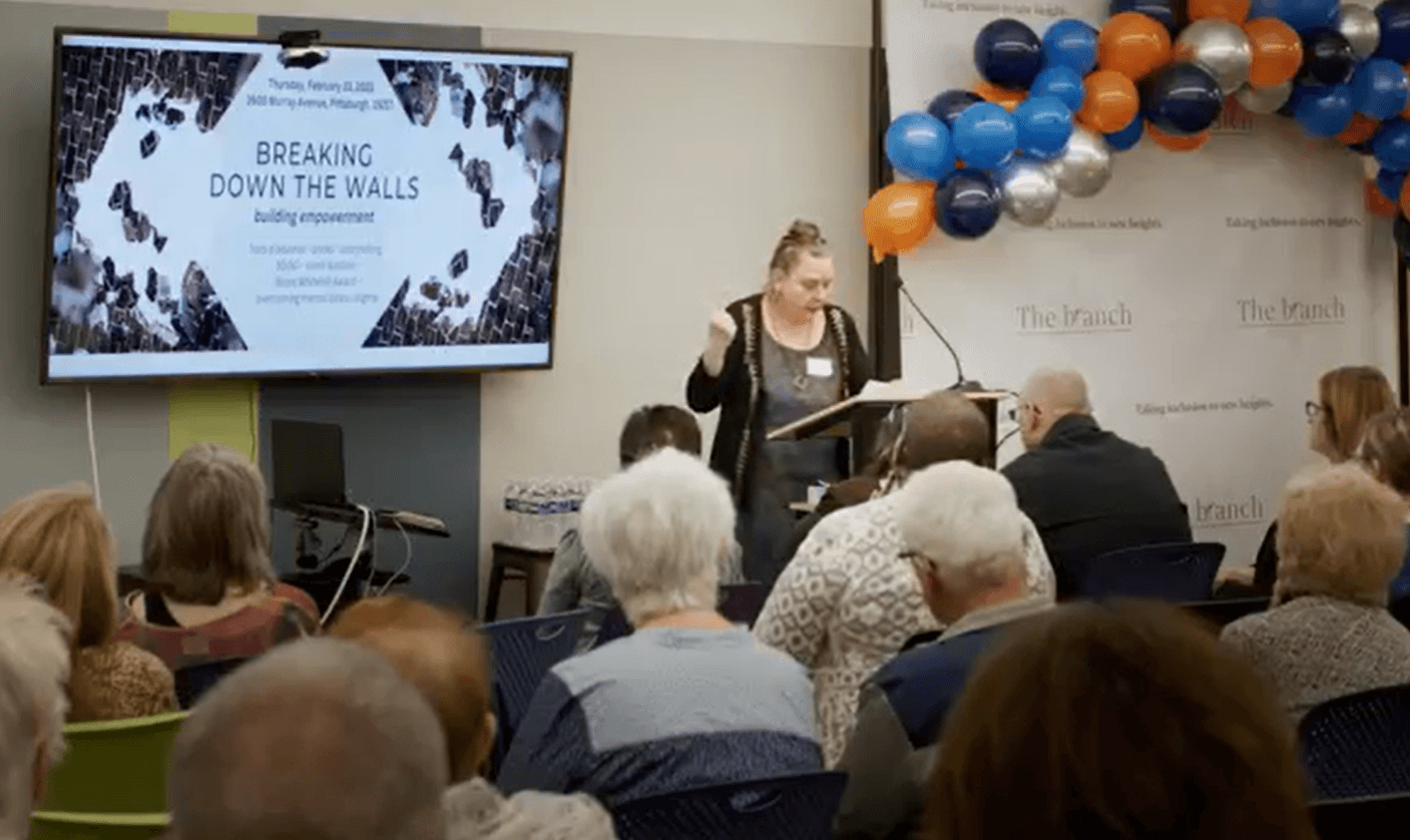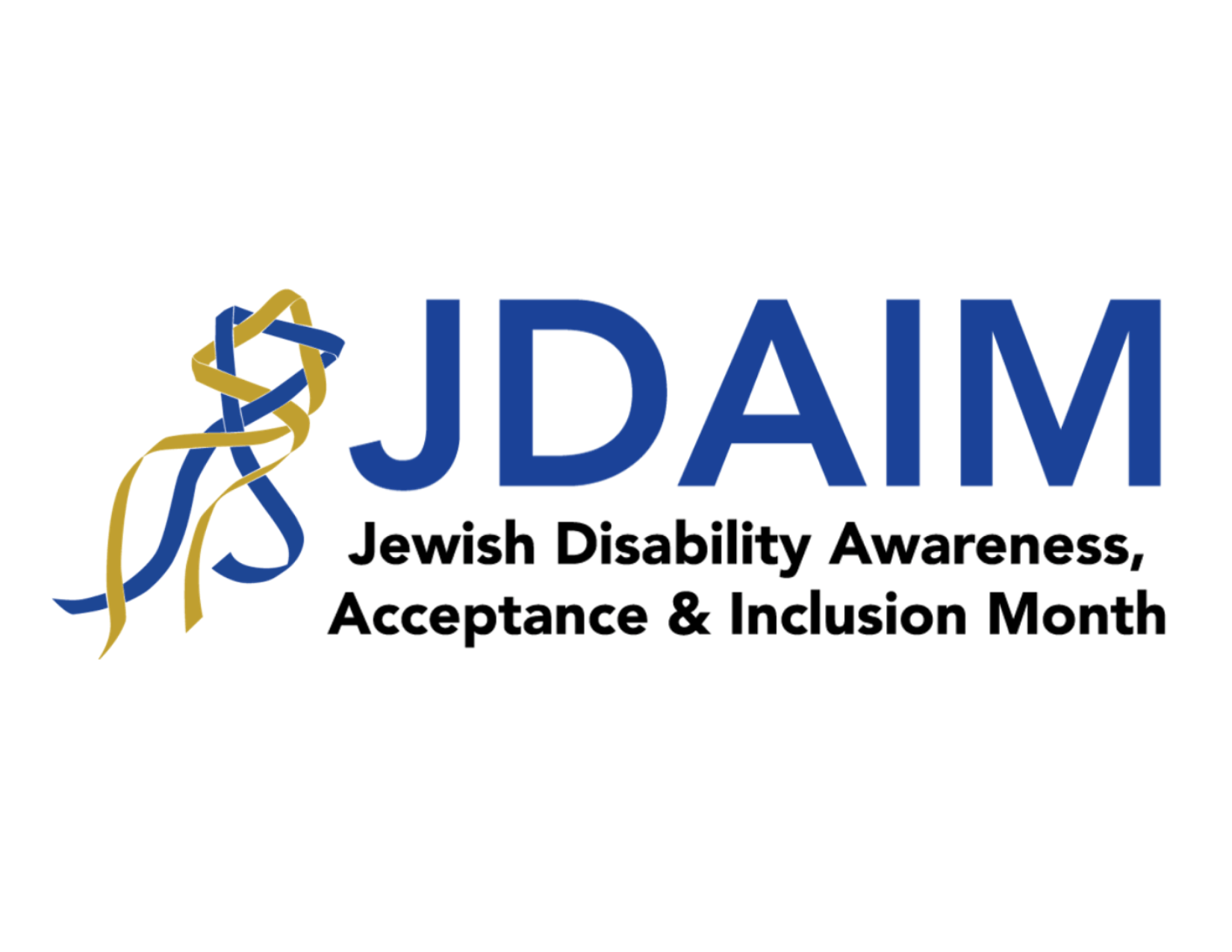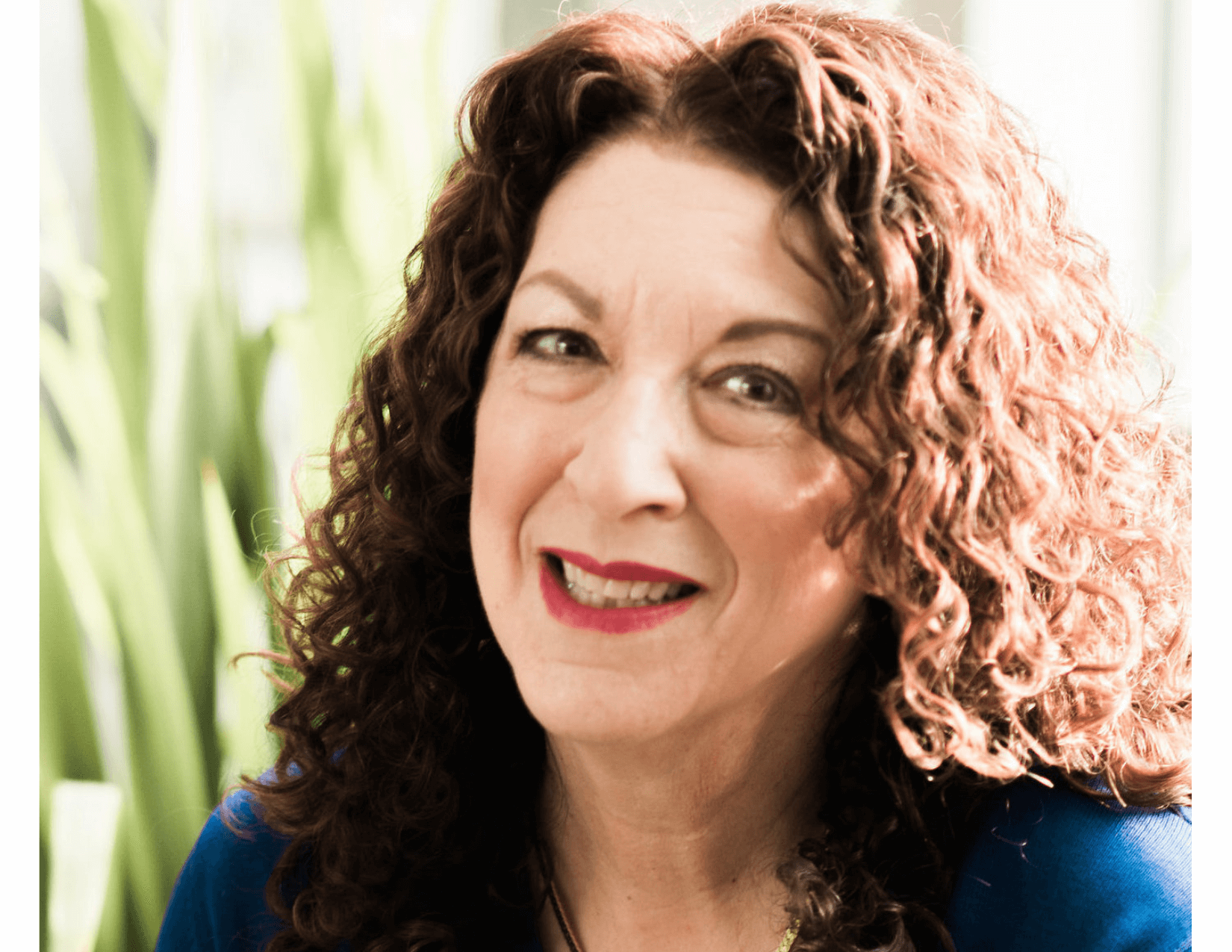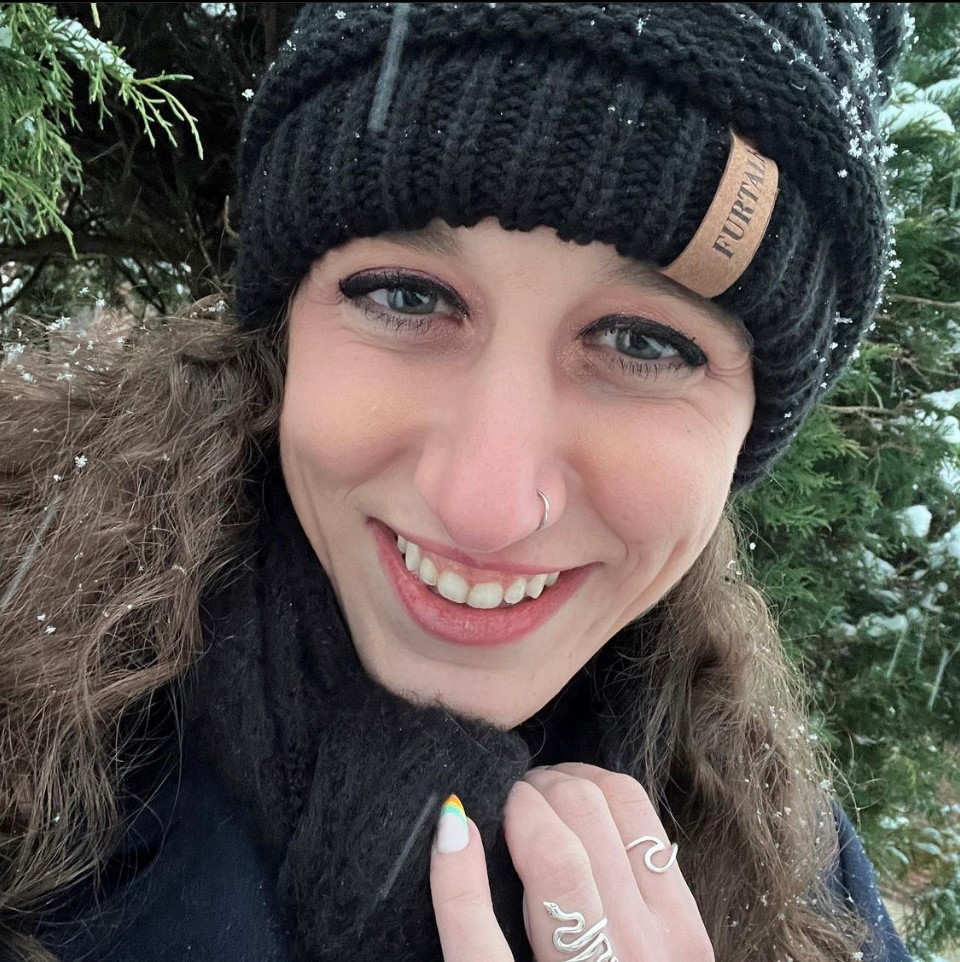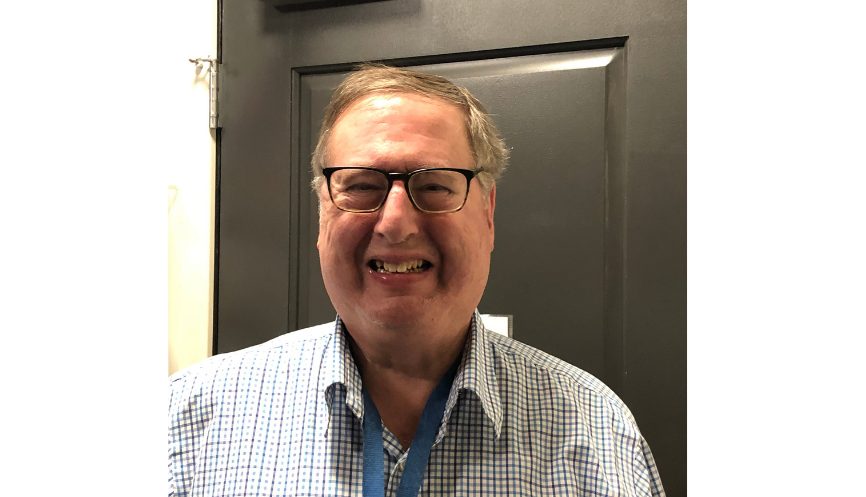See how members of the Sally and Howard Levin Clubhouse are fighting mental health stigma by sharing their experiences in the evening of storytelling “Breaking Down the Walls: building Empowerment”. Clubhouse member Heidi Morris shares her insight in this video.
Category: Disability Rights
Language Matters
The Blue Dove Foundation’s Mental Health Glossary is a starting point to help us think about the way we are using language and how it affects others.
Mental Illness in the Media
Media portrayals of those with mental illness often skew toward either stigmatization or trivialization. Consequently, all forms of media—including television, film, magazines, newspapers, and social media—have been criticized for disseminating negative stereotypes and inaccurate descriptions of those with mental illness. Learn more.
February is Jewish Disability Awareness, Acceptance and Inclusion Month
Held every February, Jewish Disability Awareness, Acceptance, and Inclusion Month (JDAIM) is a unified effort among Jewish organizations and communities worldwide to raise awareness and foster inclusion of people with disabilities. There are several opportunities for members of the Jewish community and beyond to learn more about current issues facing people with disabilities, barriers to opportunities, and best practices for disability inclusion in faith communities and daily life.
Throughout the month, The Branch will hold events to highlight the importance of inclusion when it comes to those living with a mental health diagnosis. Event Attendees will hear first hand from people in our community and beyond.
“As a local leader in services for people with disabilities, The Branch is looking forward to exploring the ways having a mental health diagnosis impacts the lives of people in our community. Our goal is to ensure that disability inclusion is the norm in Pittsburgh’s Jewish community, not only in February, but throughout the year”, said Nancy Gale, Executive Director of The Branch.
The Intersection of Race, Disability and Religion: A First-Person Experience
Join The Branch and webinar speaker Asha Chai-Chang as she talks about the growing community of Jews who identify as Jews of Color. Born in Long Island as the Jamaican/Cuban/Chinese/Jewish daughter to immigrant parents, Asha is an Actuary by Trade turned Award-Winning Director/Writer with invisible disabilities.
Asha will create an open dialogue about being a person of color with multiple disabilities and speak about the intersectionality of being a Jew of Color with disabilities. She will also explore ways Jewish communities can increase visibility and create safe spaces for Jews of Color. Attendees will learn informative statistics and factual findings, have an opportunity to connect within the webinar, and walk away with new tools and best practices.
Asha Chai-Chang is the Co-Founder for Slamdance Unstoppable, a program for disabled talent and filmmakers that educates through films, panels, and partnerships on ways we can address DEIA issues concerning participants, audience members, and submitters. Additionally, Asha is a Production Accessibility Coordinator, which often highlights the importance of disability accommodation requests in the entertainment industry. Her work in this industry informs practices that can be applied to organizations, businesses and communities.
Webinar date TBD. To register or for more information, contact clasky@jrspgh.org.
Interview with the Co-Founder of JDAIM: Shelly Christensen
Shelly Christensen, MA, FAAIDD, is the Senior Director of Faith Inclusion at RespectAbility, a nonprofit organization fighting stigmas and advancing opportunities so people with disabilities can fully participate in all aspects of community.
Shelly is a pioneer and leader in the faith community disability and mental health inclusion movement. Her passion for this work is anchored by her experiences as the parent of a child with autism. Long before she was an emerging leader in the field, Shelly was trained as a parent advocate, unwaveringly holding the school accountable for her son’s rights to a free appropriate public education as mandated in the IDEA.
After publication of her book, The Jewish Community Guide to Inclusion of People with Disabilities, she was in demand as a keynote speaker, trainer, and consultant for other communities. She founded Inclusion Innovations to expand her capacity to work with diverse faith-based organizations.
In 2009, Shelly co-founded Jewish Disability Awareness, Acceptance, and Inclusion Month (JDAIM). Through Shelly’s leadership, JDAIM is recognized around the world by local, national and international organizations.
Click here to see an interview about Shelly, how JDAIM came to be, and how you can get involved.
Call for Nominations: Do you know a champion of disability inclusion?
The Shore-Whitehill Award, named for Barbara Shore and Robert Whitehill, celebrates those who are dedicated to disability inclusion in the Jewish community.
Do you know someone who is a champion of inclusion of people of all abilities in the Jewish community? Do you want to celebrate their contributions? We are looking to celebrate their accomplishments and passion for inclusion.
Who can be nominated?
• A volunteer working in the Jewish community.
• A paid professional working in the Jewish community who has gone above and beyond to support inclusion outside of their working hours.
• An individual who promotes inclusion within the Jewish community but is not associated with a specific organization (i.e., landlords, caregivers, first responders, business owners).
• A person who is Jewish or non-Jewish.
Who can nominate a champion?
Anyone! Nominations can come from an individual, on behalf a congregation, organization, business, or group.
What do I need to do to nominate someone?
It’s easy, just complete this brief online form. Nominations must be received by September 30th.
What happens next?
The recipient of the 2023 Shore Whitehill Award will be honored at an inclusion event to be held during Jewish Disability Awareness and Inclusion Month, February 2023. This event will be organized by Jewish Residential Services with input from the nominator(s).
Inclusive Volunteering Toolkit
Society has become increasingly interested in volunteerism. Studies have shown that there are a lack of volunteer opportunities for people with disabilities . Our community must strive to have inclusive volunteer programs, as there are many benefits to all.
Benefits to all volunteers included pride, skill development, empowerment, and increases communication. Having an inclusive volunteer program helps people without disabilities have a positive attitude change and increased social interaction toward people with disabilities leading to a greater understanding of what it is like to live with a disability. Simply said, volunteering brings people from all walks of life together, as long as there are not barriers for certain populations to participate.
Do you want to learn more about how to make your volunteer program more inclusive?
Click here to view ARC’s Inclusive Volunteering Tool Kit
Jewish Disability Awareness and Inclusion Month Profile: Sam Skobel
Meet Sam Skobel, an online tutor and dance teacher working towards a masters in education. Sam talks about her experiences having epilepsy and how it has impacted her career path. She also offers advice to people with disabilities and to employers. Watch her interview here.
To learn more about the inclusion of people of all abilities in the workplace, click here to sign up for a free webinar being held on Monday, February 28th at 5:30pm.
Jewish Disability Awareness and Inclusion Month Profile: David Dickman
Squirrel Hill residents might recognize David Dickman from the Murray Avenue Giant Eagle, where he has been employed as a bagger for 23 years. David is a member of Poale Zedeck, a resident of Krause Commons on Murray Avenue, a participant in Life’sWork classes, and a participant in Jewish Residential Services’ supportive living program. To say he is a staple in the Squirrel Hill community is not an overstatement.
David explains, “I know a lot of the people from Squirrel Hill, and they know me. Squirrel Hill is my home base.”
What some people who recognize David might not know is that he lives with a mental health diagnosis that has been persistent and severe for much of his life. The activities and programs in which David participates are necessary for him to live a full life and receive the support he needs. David’s job at Giant Eagle is essential to providing structure in David’s life.
His job gives him a sense of dignity, accomplishment, and responsibility. “I get depressed some days. If I didn’t have work, I wouldn’t know what to do. It is important for me to work. I don’t want to only take, but I want to give. Helping other people helps me,” said David.
David’s appreciation for his job is not surprising, considering national organizations like NAMI report people with a mental health diagnosis who are employed for a meaningful length of time report improved self-esteem and symptom management. Part of David’s success finding and keeping employment comes from a job coach who assists him with goals, challenges, and planning.
Although nearly 60 percent of the seven million people receiving public mental health services nationwide want to work, less than two percent receive supported employment opportunities such as job coaching and community-based services. Finding work can be overwhelming for anyone; however, people with psychiatric disabilities face additional challenges due to their symptoms. Without supported employment opportunities, a person with a mental health diagnosis is less likely to find, keep, and be successful at a job.
It is David’s hope that employers throughout the city and beyond recognize that there are people with disabilities who want to work, and who are valuable to the workplace. “People with disabilities have challenges just like anyone else. They are trying to overcome their disabilities to concentrate on the job,” said David.
As for what he thinks people with disabilities need to know about finding employment, “I think people with disabilities need someone to work with them to realize what they can do. It has helped me. A job can be a springboard to other opportunities.”
To learn more about the inclusion of people of all abilities in the workplace, click here to sign up for a free webinar being held on Monday, February 28th at 5:30pm.
